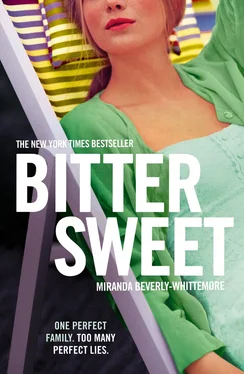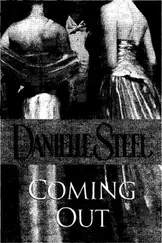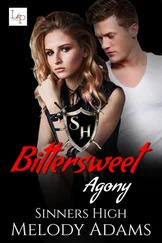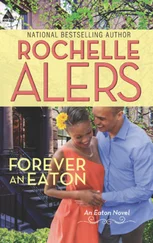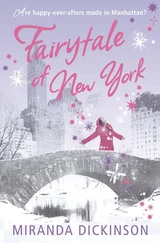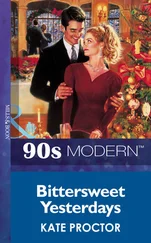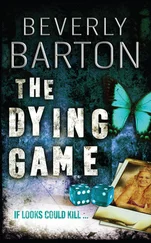The end of the year was in sight, and I felt sure Ev and I had secured our roles: she tolerated me, while I pretended to disdain everything she stood for. So it came as a shock, that first week of February, to receive a creamy, ivory envelope in my campus mailbox, my name penned in India ink across its matte expanse. Inside, I found an invitation to the college president’s reception in honor of Ev’s eighteenth birthday, to be held at the campus art museum at the end of the month. Apparently, Genevra Katherine Winslow was donating a Degas.
Any witness to me thrusting that envelope into my parka pocket in the boisterous mail room might have guessed that humble old Mabel Dagmar was embarrassed by the showy decadence, but it was just the opposite – I wanted to keep the exclusive, honeyed sensation of the invitation to myself, lest I discover it was a mistake, or that every single mailbox held one. The gently nubbled paper stock kept my hand warm all day. When I returned to the room, I made sure to leave the envelope prominently on my desk, where Ev liked to keep her ashtray, just below the only picture she had posted in our room, of a good sixty people – young and old, all nearly as good-looking and naturally blond as Ev, all dressed entirely in white – in front of a grand summer cottage. The Winslows’ white clothing was informal, but it wasn’t the kind of casual my family sported (Disneyland T-shirts, potbellies, cans of Heineken). Ev’s family was lean, tan, and smiling. Collared shirts, crisp cotton dresses, eyelet socks on the French-braided little girls. I was grateful she had put the picture over my desk; I had ample time to study and admire it.
It was three days before she noticed the envelope. She was smoking atop her bunk – the room filling with acrid haze as I puffed on my inhaler, huddled over a calculus set just below her – when she let out a groan of recognition, hopping down from her bed and plucking up the invitation. ‘You’re not coming to this, are you?’ she asked, waving it around. She sounded horrified at the possibility, her rosebud lips turned down in a distant cousin of ugly – for truly, even in disdain and dorm-room dishevelment, Ev was a sight to behold.
‘I thought I might,’ I answered meekly, not letting on that I’d been simultaneously ecstatic and fretful over what I would ever wear to such an event, not to mention how I would do anything attractive with my limp hair.
Her long fingers flung the envelope back onto my desk. ‘It’s going to be ghastly. Mum and Daddy are angry I’m not donating to the Met, so they won’t let me invite any of my friends, of course.’
‘Of course.’ I tried not to sound wounded.
‘I didn’t mean it like that,’ she snapped, before dropping back into my desk chair and tipping her porcelain face toward the ceiling, frowning at the crack in the plaster.
‘Weren’t you the one who invited me?’ I dared to ask.
‘No.’ She giggled, as though my mistake was an adorable transgression. ‘Mum always asks the roommates. It’s supposed to make it feel so much more … democratic.’ She saw the look on my face, then added, ‘I don’t even want to be there; there’s no reason you should.’ She reached for her Mason Pearson hairbrush and pulled it over her scalp. The boar bristles made a full, thick sound as she groomed herself, golden hair glistening.
‘I won’t go,’ I offered, the disappointment in my voice betraying me. I turned back to my math. It was better not to go – I would have embarrassed myself. But by then, Ev was looking at me, and continuing to stare – her eyes boring into my face – until I could bear her gaze no more. ‘What?’ I asked, testing her with irritation (but not too much; I could hardly blame her for not wanting me at such an elegant affair).
‘You know about art, right?’ she asked, the sudden sweetness in her voice drawing me out. ‘You’re thinking of majoring in art history?’
I was surprised – I had no idea Ev had any notion of my interests. And although, in truth, I’d given up the thought of becoming an art history major – too many hours taking notes in dark rooms, and I wasn’t much for memorization, and I was falling in love with the likes of Shakespeare and Milton – I saw clearly that an interest in art was my ticket in.
‘I think.’
Ev beamed, her smile a break between thunderheads. ‘We’ll make you a dress,’ she said, clapping. ‘You look pretty in blue.’
She’d noticed.
THREE WEEKS LATER, I found myself standing in the main, glassy hall of the campus art museum, a silk dress the color of the sea deftly draped and seamed so I appeared twenty pounds lighter. At my elbow stood Ev, in a column of champagne shantung. She looked like a princess, and, as for a princess, the rules did not apply; we held full wineglasses with no regard for the law, and no one, not the trustees or professors or senior art history majors who paraded by, each taking the time to win her smile, batted an eye as we sipped the alcohol. A single violinist teased out a mournful melody in the far corner of the room. The president – a doyenne of the first degree, her hair a helmet of gray, her smile practiced in the art of raising institutional monies – hovered close at hand. Ev introduced me to spare herself the older woman’s attention, but I was flattered by the president’s interest in my studies (‘I’m sure we can get you into that upper-level Milton seminar’), though eager to extract myself from her company in the interest of more time with Ev.
Ev whispered each guest’s name into the whorl of my ear – how she kept track of them, even now I do not know, except that she had been bred for it – and I realized that somehow, inexplicably, I had ended up the guest of honor’s guest of honor. Ev may have beguiled each attendee, but it was with me that she shared her most private observations (‘Assistant Professor Oakley – he’s slept with everyone,’ ‘Amanda Wyn – major eating disorder’). Taking it all in, I couldn’t imagine why she wouldn’t want this: the Degas (a ballerina bent over toe shoes at the edge of a stage), the fawning adults, the celebration of birth and tradition. As much as she insisted she longed for the evening to be over, so did I drink it in, knowing all too well that tomorrow I’d be back in her winter boots, slogging through the sleet, praying my financial aid check would come so I could buy myself a pair of mittens.
The doors to the main hall opened and the president rushed to greet the newest, final guests, parting the crowd. My diminutive stature has never given me advantage, and I strained to see who had arrived – a movie star? an influential artist? – only someone important could have stirred up such a reaction in that academic group.
‘Who is it?’ I whispered, straining on tiptoe.
Ev downed her second gin and tonic. ‘My parents.’
Birch and Tilde Winslow were the most glamorous people I’d ever seen: polished, buffed, and obviously made of different stuff than I.
Tilde was young – or at least younger than my mother. She had Ev’s swan-like neck, topped off by a sharper, less exquisite face, although, make no mistake, Tilde Winslow was a beauty. She was skinny, too skinny, and though I recognized in her the signs of years of calorie counting, I’ll admit that I admired what the deprivation had done for her – accentuating her biceps, defining the lines of her jaw. Her cheekbones cut like razors across her face. She wore a dress of emerald dupioni silk, done at the waist with a sapphire brooch the size of a child’s hand. Her white-blond hair was swept into a chignon.
Birch was older – Tilde’s senior by a good twenty years – and he had the unmovable paunch of a man in his seventies. But the rest of him was lean. His face did not seem grandfatherly at all; it was handsome and youthful, his crystal-blue eyes set like jewels inside the dark, long eyelashes that Ev had inherited from his line. As he and Tilde made their slow, determined way to us, he shook hands like a politician, offering cracks and quips that jollified the crowd. Beside him, Tilde was his polar opposite. She hardly mustered a smile, and, when they were finally to us, she looked me over as though I were a dray horse brought in for plowing.
Читать дальше
